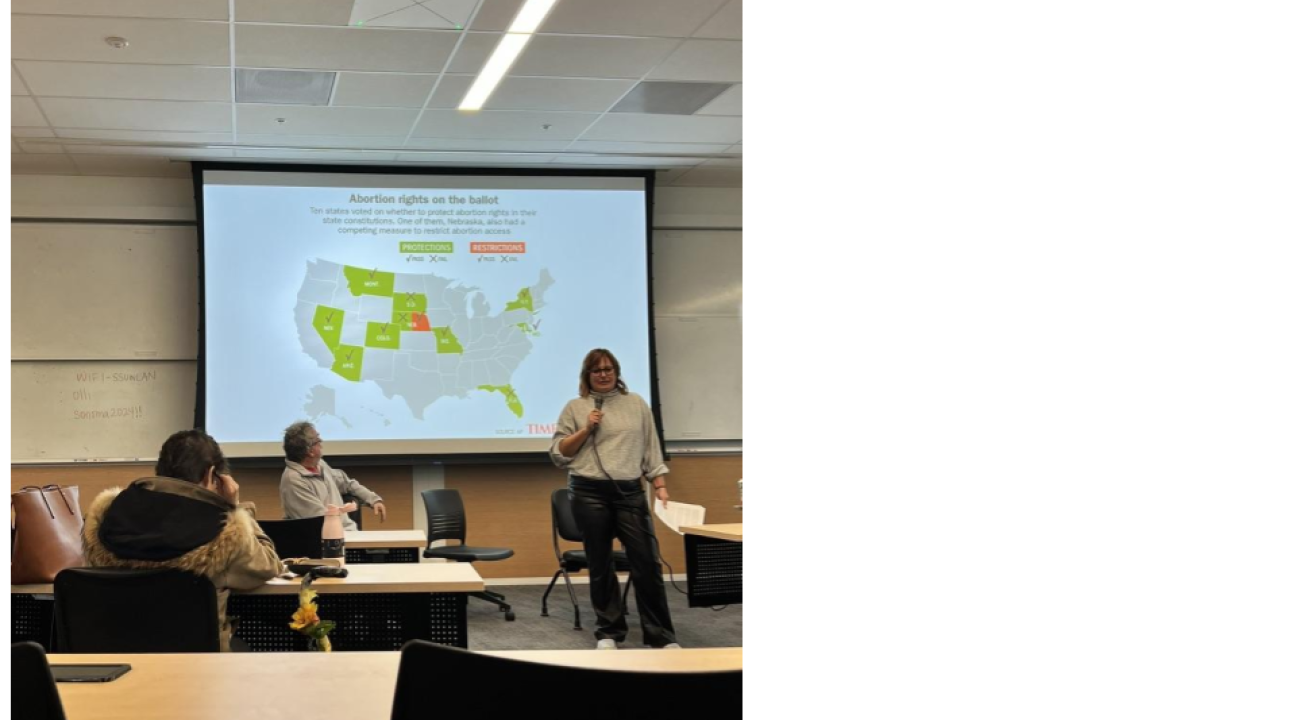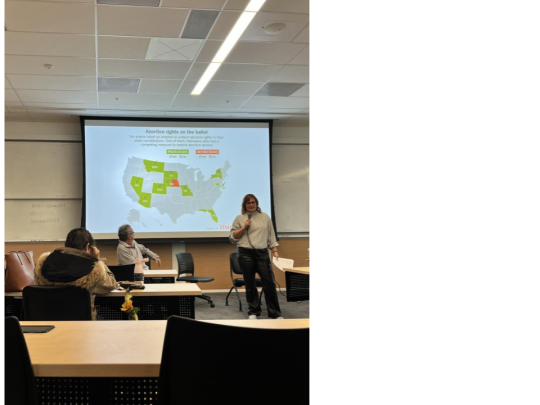It Matters! Final Seminar
By Vanessa Mendoza
The final seminar in the It Matters! Series dove into two critical topics that hit close to home: the challenges of modern polling, and the shifting landscape of reproductive rights. Professor David McCuan facilitated the discussion, in which Professor Richard Hertz, and Dr. Cynthia Boaz shared insights that felt deeply relevant to the future of our country.
Professor Richard Hertz started the discussion by reflecting on the decline of traditional polling. Decades ago, phone polls could rely on a 35-35% response rate. Today, with caller ID and fewer people answering calls from unknown numbers, it is harder to gather reliable data. Some innovative techniques, like algorithmic adjustments, have helped, with outlets like The New York Times producing solid predictions. Still, a lot of junk polls have rushed to fill the gap, muddying the waters. Even on our campus, a student-designed poll with The Press Democrat sparked excitement, pulling in almost 3,000 responses. But Hertz pointed to a deeper issue: low voter turnout. “Democracy works better when people show up,” he reminded us, highlighting how disengagement erodes the system we all depend on.
Dr. Boaz transitioned the discussion and shared some powerful, even heart–wrenching stories from her research on abortion access in 22 states. Women in restrictive states face enormous barriers— stigma, isolation, and even health risks. Yet, she reminded us that bans don’t reduce abortions; they just make them more dangerous. Her stories revealed an alarming reality: women in America could face in a future where basic reproductive care depends strictly on where they live. She compared this moment to grim historical examples, like Romania’s Decree 770, and warned that policies like Project 2025 could take us back in unimaginable ways.
Both speakers left the audience with a clear takeaway: we can’t afford to sit this out. Whether it’s getting informed, showing up to vote, or advocating for change, the power to shape our futures is in our hands. As Professor Hertz said, “Politics ebb and flow,” but it's our participation that keeps democracy alive. This isn’t about policies or predictions— it's about people. These conversations remind us why it's so important to stay engaged, no matter how daunting the road ahead may seem.



